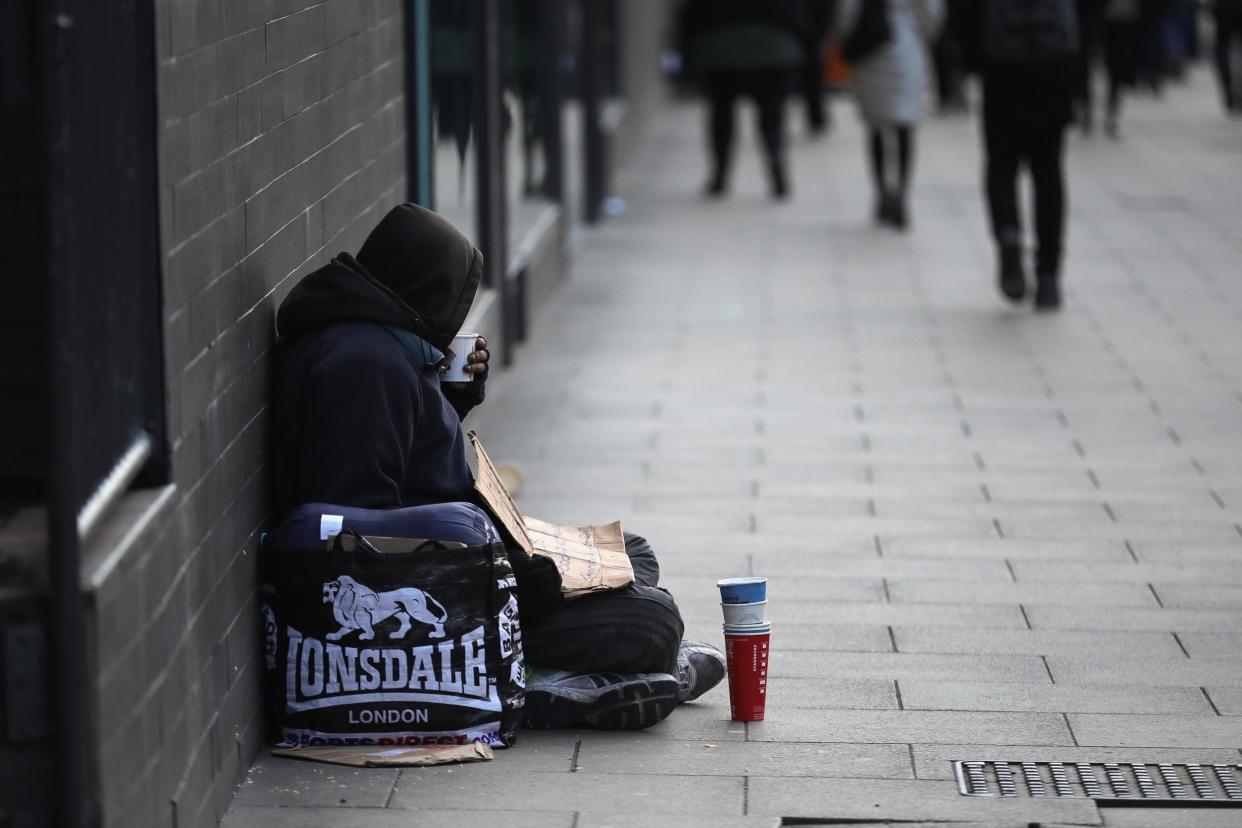Public health official calls for funding to tackle London's homeless crisis 'shaming us all’

London’s public health director says she is “ashamed” of the failure to tackle the capital’s homelessness crisis.
Professor Yvonne Doyle said budgets for preventative healthcare were being reduced year after year — with any extra health cash being used to “put the roof back on the hospital”.
A total of 54,280 households are in temporary accommodation in London — over two thirds of the national total. The number of rough sleepers is more than double the figure a decade ago.
Professor Doyle, London director of Public Health England, told a conference on the state of the capital’s health services: “It’s been the most extraordinarily difficult time in the last five years. It’s probably the most fragmented time I have ever experienced. We have not made progress on homeless people. That is one of the areas I’m ashamed of.”
The number of families in temporary housing is a key measure of public health and the problem has been getting worse.
The national average is 3.3 per 1,000 households but in Haringey it is 27.4, with 3,147 families in temporary housing in 2016/17, and in Newham it is 37.5 (4,457 families). A total of 7,484 people slept rough in London in 2017/18, slightly down on the previous year but about twice the number in 2010.
Changes in 2012 moved responsibility for public health from the NHS to councils, which have faced their own funding crises, particularly over social care.
Public Health England is charged with improving “healthy life expectancy” and reducing the gap in life expectancy between rich and poor areas. It is judged against measures including homelessness, child poverty, obesity, smoking, physical activity, teenage pregnancies and mortality rates for under-75s.
It gets about three to four per cent of the national health budget. “Prevention funding is meagre compared to treatment and cure,” Professor Doyle told the Standard. She said PHE’s borough analysis showed homelessness rising year after year.
“It’s not surprising — we can see it visually. It’s something we in public health feel very poorly about.
“We are not going to deliver prevention unless we establish a way of funding it that is stable and secure. We cannot promise to keep stretching ourselves further and further while we are being cut, cut, cut, cut.
"When extra funding appears it ‘puts the roof back on the hospital’. Undoubtedly the roofs do need putting back. But when you start talking about health and wellbeing it’s much more ephemeral — it’s hard to grasp.”
Professor Doyle, an aide to Sadiq Khan, said the mayor, who has strategic oversight of health but no direct NHS role, “has allocated more funding to public health prevention. That is very, very welcome”.

 Yahoo News
Yahoo News 
